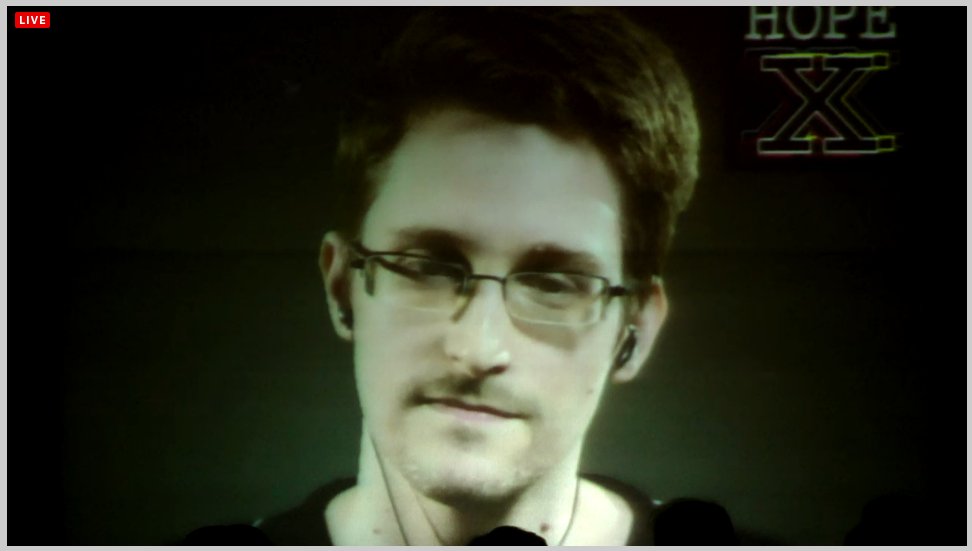
Two of the talks at HOPE X Saturday revolved around Daniel Ellsberg and Edward Snowden. Unless you’ve been living under a rock, you’ve heard of Snowden when he leaked thousands of classified NSA documents to several media outlets. The older readers may remember Ellsberg who released government documents, known as the Pentagon Papers, pertaining to government decisions made during the Vietnam War. It was a popular topic here as all three conference rooms were dedicated to the the talks and all three were completely filled to the point that staff again had to turn people away. Luckily, even if you couldn’t make it into a conference room you could still watch it as all talks are streamed live via the HOPE website.
Regardless whether you feel these two are heroes or traitors, the talks were interesting with both giving accounts of their story. Each interview was about an hour long.
Ellsberg, who was here in person, talked about his entire experience and why he felt it necessary to reveal the classified documents he had secretly made copies of. Even though Ellsberg did release what he felt was evidence that the government knew that the war could most likely not be won and would cause many more casualties, he does still feel that some things are necessary for the government to keep secret. He gave an estimate that 95% of the documents classified are over-classified at the time of document creation and after a few years only 0.5% of the those documents are still classified correctly, the remaining 99.5% still over-classified.
Snowden, who was available by video, was warmly welcomed and applauded by the attendees of the conference. During the talk he discussed that he did not feel that some of the NSA’s actions he was aware of were constitutional, specifically collecting enormous amounts of data of not only ‘people of interest’, but of everyday american citizens. Snowden feels that we, as a community, give too much trust in our electronic devices. He went on to suggest that the population do what it can to minimize the capability of organizations to monitor communications and track data. He urged that people, with the capability, help educate others on how to interact with technology safely, reliably and in a way that serves the interest of all people, not just a select few.
Let us know what you think below in the comments.











